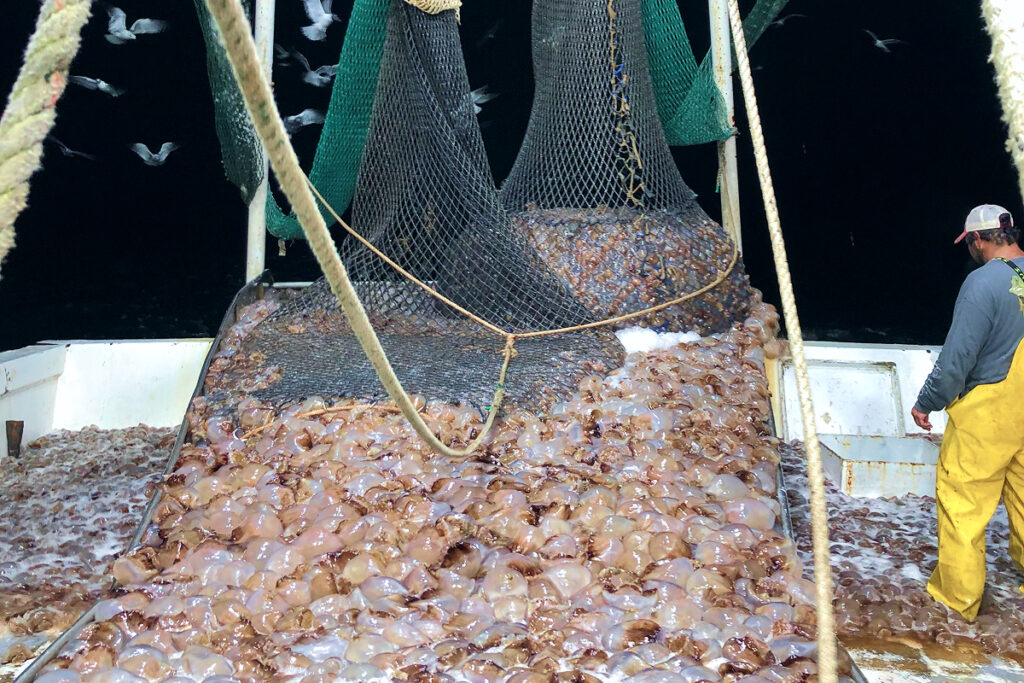On Georgia’s southern coastline, generations of fishing families have weathered the ever-shifting tides—both oceanic and economic. Once buoyed by a demand for jellyfish exports, many of these rural communities have seen that market shrink in the face of global competition and dwindling domestic interest. But where others saw a dying industry, a group of researchers and entrepreneurs saw untapped potential.

Enter JellyCo, a biotech startup emerging from the University of Georgia’s Innovation District. Its mission? To transform an overlooked and overabundant species into one of the cleanest, most sustainable sources of collagen on the market.
Collagen—long prized for its health and cosmetic benefits—is a billion-dollar global industry, traditionally sourced from bovine, porcine, and marine fish origins. But concerns around sustainability, environmental impact, disease transmission, and allergenic reactions have driven industry players to search for better alternatives. Jellyco believes the answer lies in an unexpected place: the humble jellyfish.
“Jellyfish are often seen as a nuisance or symptom of ecological imbalance,” says Peter Chiarelli, University of Georgia doctoral researcher and co-founder of Jellyco. “We see them as a renewable solution—one that can help both people and the planet.”
The science behind that optimism wasn’t simple. Jellyfish are 95% water and notoriously difficult to work with—making collagen extraction a complex and frustrating challenge. But Dr. Kevin Mis Solval, an Associate Professor of Food Science & Technology at UGA and co-founder of Jellyco, spent years in the lab perfecting a method to extract pure, highly bioavailable collagen peptides from Georgia’s native jellyfish species. While others failed to overcome the odor and instability that plague marine collagen, Dr. Solval developed a proprietary process that produces clean, neutral, and effective peptides—essentially cracking the collagen code. This scientific leap, supported by the UGA Innovation District, laid the foundation for Jellyco’s commercialization and scalability.
Leveraging cutting-edge marine biology and proprietary extraction technology, Jellyco has pioneered a new method for producing ultra-pure collagen peptides from native jellyfish species found off the coast of Georgia. The company’s process is free of harsh chemicals and optimized for traceability, aligning with the rising consumer demand for clean-label, ethically sourced ingredients.
What sets jellyfish collagen apart, scientists say, is its exceptional bioavailability—how easily the body absorbs and uses it. “It’s structurally compatible with human tissues,” notes Chiarelli. “That makes it not only effective but also more accessible for people with dietary restrictions or sensitivities.”
We see them [jellyfish] as a renewable solution, one that can help both people and the planet.
Peter Chiarelli, Co-founder of JellyCo
This positions Jellyco’s collagen for wide-ranging applications—from beauty and wellness to pharmaceuticals, functional foods, medical devices, and even pet health.
But the company’s vision goes beyond the lab. By partnering with local fishers and revitalizing dormant coastal infrastructure, Jellyco is reinvesting in the very communities that first harvested these gelatinous creatures decades ago.


“It’s not just about product innovation—it’s about impact,” says Dr. Mis Solval. “We’re creating a model where economic resilience, environmental stewardship, and scientific advancement go hand in hand.”
As global industries scramble to align with environmental and socially responsible principles while meeting a new generation of health-conscious, eco-minded consumers, Jellyco’s timing couldn’t be better. Its story is one of reinvention—of a company, of a coastal economy, and perhaps even of an entire sector of biotech.
In a world hungry for solutions that work in harmony with nature, Jellyco is betting big on the jellyfish—and inviting the rest of us to see it not as a pest, but as a possibility.

